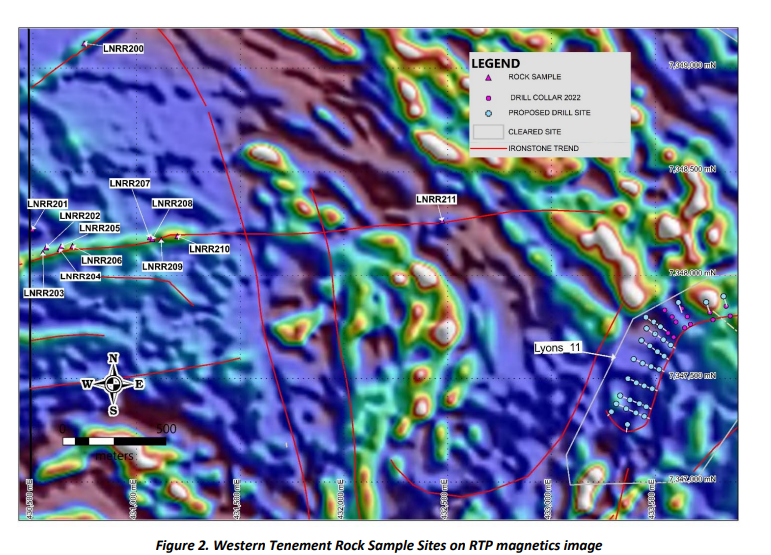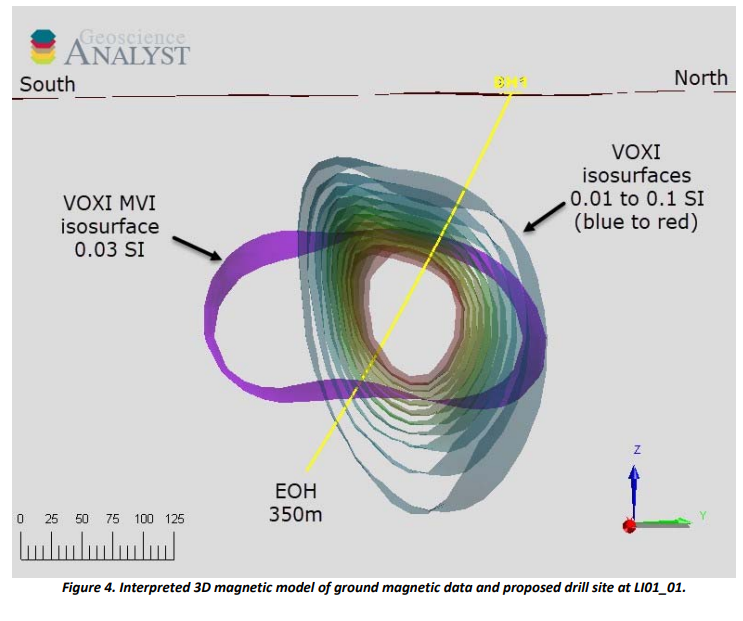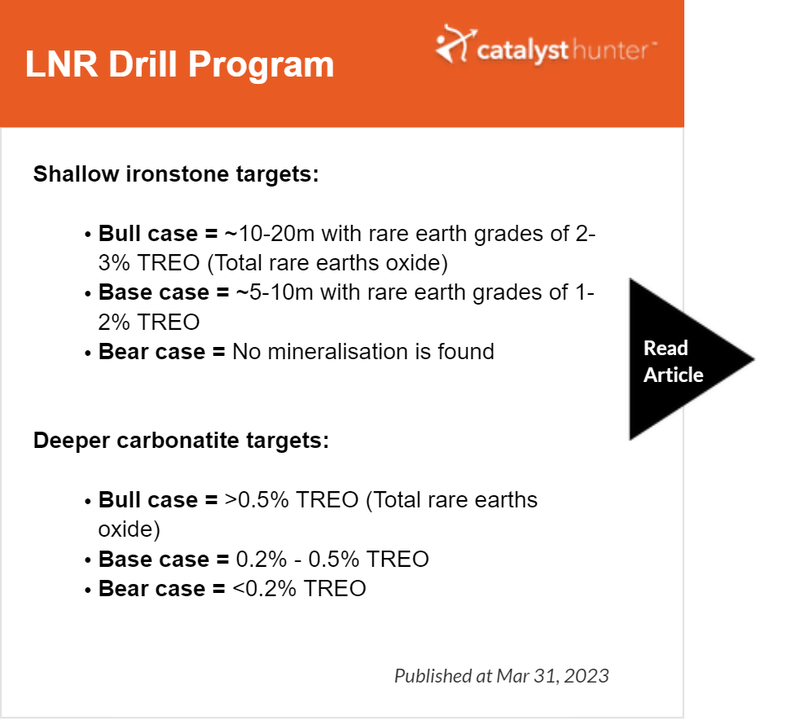LNR: rare earths drilling to start in coming days
With just days to wait, our rare earths Investment Lanthanein Resources (ASX:LNR) is now very close to commencing a big drill program in the Gascoyne region of Western Australia.
Importantly for our Investment, LNR’s $20M market cap is only a fraction of its peers who have made bigger discoveries nearby.
LNR is next door to $277M capped Hastings Technology Metals and the $228M capped Dreadnought Resources.
Our hope is that with this drilling program, LNR can hit significant mineralisation and re-rate inline with its Gascoyne region neighbours.
Here, LNR is drilling two types of targets, each with their own characteristics:
Shallow: LNR High grade shallow ironstones - 10,000m RC drilling
Deep: LNR Large scale carbonatite targets - two deep diamond drill holes
LNR already has solid ironstone hosted rare earths assays in the back pocket following a maiden drill campaign at this project, for which assays came through in December of last year.
In an added bonus today, LNR announced that its team on the ground have identified new ironstone trends (red lines in image below) which should further aid the drilling team when the project is again tested with the drill bit:

A rock chip sampling program was undertaken and LNR is awaiting assays on these samples, which in conjunction with a recent high resolution ground magnetic survey, will also help guide LNR’s drilling:

That yellow line is one of the two deeper carbonatite holes and, pleasingly, the vector of the proposed drill hole runs right through the centre of the 3D magnetic model of the target.
We’ve set expectations for this drill program as follows:

For a full rundown on the significance of this drilling program and what we expect, read our latest LNR note.
What’s next for LNR?
Drilling to commence in the Gascoyne region of WA 🔄
This is the next major catalyst we are looking forward to for LNR.
The drill program will consist of 10,000m of RC drilling on the shallow ironstone targets and two 450m deep diamond drill holes targeting the carbonatites.






